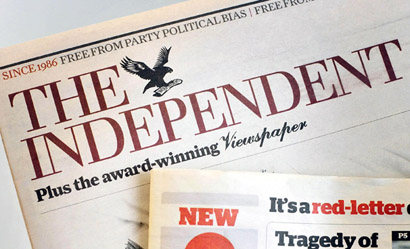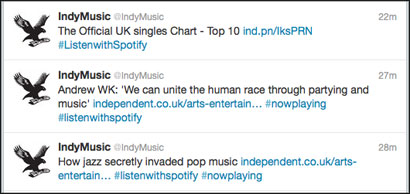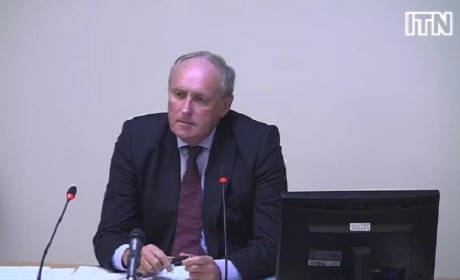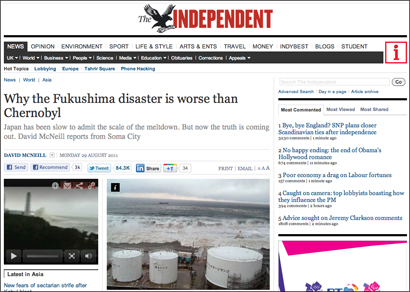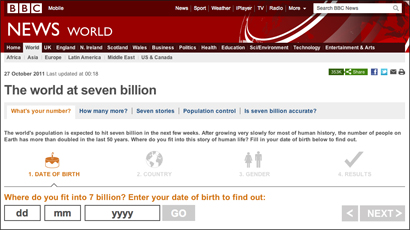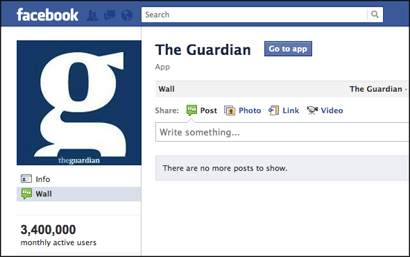
The Guardian’s Facebook app is generating almost a million extra page impressions per day, according to figures released by the news outlet and by Facebook.
Two months on from its launch at Facebook’s f8 conference in London the app has been installed by over four million users.
The news outlet also believes that the app is engaging a younger audience, as over half (56.7 per cent) of the app’s users are 24 and under and 16.7 per cent are 17 and under.
Andrew Miller, chief executive officer of Guardian Media Group, said in a statement:
As well as increasing traffic, the app is making our journalism visible to new audiences. Over half of the app’s users are 24 and under – traditionally a very hard-to-reach demographic for news organisations
The Independent, the other UK-based news outlet to launch a Facebook app following f8 on 22 September, is reporting that it has more than one million monthly active users connecting their Facebook accounts.
The integration has bumped up older articles that have gone viral through social distribution, according to the Facebook post detailing the statistics.
The news organisation found that many of the “most shared” and “most viewed” stories on the site have been from the late 1990s, “a result of the increased social virality”.
The Guardian and Independent both took a different approach when building their Facebook apps. The Guardian focused on the reading experience within Facebook, the shared reading experience for the Independent takes place on the news site.
Yahoo! News, which like the Independent integrated the app into its site, has reported that 10 million people are using the app, with Yahoo! News experiencing a 600 per cent increase in traffic coming from Facebook as a result.
People who connect to Facebook on Yahoo! read more articles than the average user, the Facebook post states.
Like the Guardian, the Washington Post built a social reader app for Facebook as a companion for its website with the social sharing taking place within Facebook. It has drawn more than 3.5 million monthly active users so far. The Facebook post states that the social reader is growing, especially among international audiences and younger readers, with 83 per cent of readers under 35 years old.
According to Facebook, the statistics released last night show that the apps do five things:
1. Show recommendations to increase engagement. Keep people engaged by prominently showing friends’ recent activity on your main pages and pages with high exit rates. When no social content is available, surface personalised recommendations based on users’ interests on Facebook and clearly explain why you’re showing each recommendation.
2. Create compelling objects. Maximise the click through rates of your stories by specifying Open Graph tags for all your articles and including compelling images, titles and descriptions. Avoid misleading images or titles to prevent your app from being marked as spam, which will negatively impact your app’s distribution in news feed.
3. Leverage your existing user base. If you have an existing site, be sure to make connecting a prominent option for existing users. And if people are already sharing your content on Facebook, consider sending referral traffic from Facebook into a flow that makes it easy for people to have a social experience on your site.
4. Make the benefits of sharing clear. Open Graph apps are designed for people that want to share. In your app, you should clearly explain how your app works and the benefits of adding your app to their timeline. Choose an approach that makes the most sense for your users, whether that’s an informative dialog, in-line marketing messaging, house ad inventory, and/or a learn more page.
5. Keep users in control. As we’ve previously highlighted, people are more active when they are in control. In addition to the privacy controls on Facebook, we encourage you to build controls into your app that fit how people use your app.
